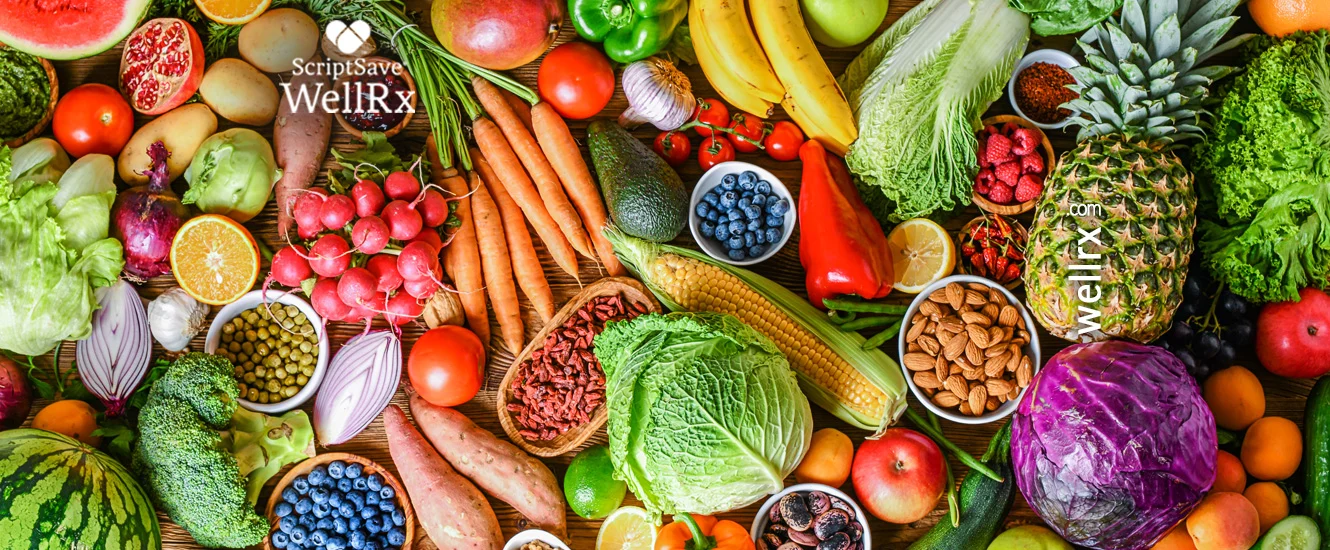The food you eat is one of the biggest influences on your overall health. Nutritious foods get packed with vitamins, minerals, and other nutrients that your body needs to function at an optimal level. The polyphenols and antioxidants found in foods such as fruits, vegetables, and nuts can help protect against disease, increase your energy, and even extend your lifespan.
Three Simple Rules for Eating
While there is a lot of debate about what constitutes a healthy diet (and there is no one diet that is best for everyone), you can improve your health by following a few simple rules. As author and journalist Michael Pollan recommends in his book In Defense of Food, “Eat food. Not too much. Mostly plants.”
By “eat food,” Pollan means to choose real food like fruits, vegetables, whole grains, and even fish and meat, rather than “food-like substances” that got produced in a factory. Shifting your diet to these types of foods — also commonly referred to as whole foods — can have a tremendous impact on your health.
Second, don’t overeat. Some of the longest-lived populations on the planet have mastered the habit of putting the fork down when they’re 80 percent full. The digestive system needs a chance to rest between meals to function at its best. Try to avoid late-night snacking or eating until you are full.
Finally, make the bulk of your diet plant foods — preferably non-starchy fruits and vegetables like leafy greens, berries, nuts, legumes, and cruciferous vegetables. These foods contain plenty of micronutrients such as antioxidants, carotenoids, and flavonoids, which provide various health benefits. For best results, choose fruits and vegetables in a variety of different colors. Plant foods get their health benefits from the same compounds that give them their vibrant colors, so selecting foods in different colors will ensure that you get various nutrients in your diet.
Let’s take a look at some of the most nutritious foods you can choose.
1. Kale and Other Leafy Greens
Let’s get this one out of the way. You knew any list of nutritious foods would have to contain kale. Kale has a reputation as one of the healthiest foods for a reason: it contains vitamins like vitamin C, vitamin A, and vitamin K, as well as minerals such as potassium, calcium, and magnesium. Kale also contains compounds known as isothiocyanates, which are proven to fight cancer.
If you don’t like kale, try eating it in different ways. A specific gene makes some people more sensitive to bitter flavors and therefore more likely to eat fewer vegetables. If you find kale, broccoli, or brussels sprouts too bitter, try serving them with some olive oil and a little salt, as salt and fat can help counteract the bitterness.
Other leafy greens to try adding to your diet include spinach, swiss chard, and collard greens.
2. Blueberries
Blueberries — and other dark blue or purple berries such as acai and elderberries — are packed with antioxidants. Blueberries are an excellent source of a type of flavonoid known as anthocyanins, which are proven to improve ocular health. Other studies have found that blueberries may help prevent age-related diseases such as cancer, diabetes, and cognitive decline. Adding blueberries to your diet may also help lower your blood pressure or LDL cholesterol.
It’s important to remember that the antioxidant benefits of berries come from the whole fruit. Processed foods “made with” blueberries or containing blueberry flavoring will not deliver the same positive health effects.
3. Chia Seeds
Chia seeds are one of the most nutrient-dense foods on the planet. Chia seeds get loaded with several nutrients, including calcium, manganese, magnesium, and phosphorus. They’re also a good source of antioxidants, which help protect against degenerative diseases such as cancer, cardiovascular disease, and brain dysfunction. Animal studies have also demonstrated that chia seeds may help improve insulin sensitivity and blood sugar control.
Chia seeds are easy to add to your diet. They are virtually tasteless and can easily get added to yogurt, smoothies, cereal, salads, or stir fries. Chia seeds expand in liquid and form a gel-like substance. They can get soaked in a liquid such as coconut milk to create a type of pudding that can get eaten for breakfast or dessert.
4. Olives and Olive Oil
Olives and olive oil are excellent sources of antioxidants and healthy fats, all of which reduce the risk of heart disease. Olives can help increase levels of an important antioxidant known as glutathione. Low glutathione levels are associated with many chronic degenerative diseases, including neurodegenerative disorders, cardiovascular disease, immune diseases, liver disease, pulmonary disease, age-related vision problems such as macular degeneration, and the aging process itself.
Try using olive oil in place of butter or margarine. You can also drizzle it over vegetables and use it in place of bottled salad dressings, which are often high in sugar.
5. Nuts
Nuts — such as almonds, cashews, pecans, and walnuts — make an excellent healthy snack that’s full of plant protein and monounsaturated fats. They’re also a great source of critical nutrients that many people are deficient in, such as magnesium and vitamin E. Brazil nuts are one of the best sources of selenium—their antioxidants supporting thyroid health and the immune system.
The Bottom Line
All fresh fruits and vegetables are good sources of antioxidants and other crucial nutrients. Increasing your intake of fresh, whole foods and reducing your consumption of processed food can help you significantly improve your health and reduce the risk of disease. Try to do most of your grocery shopping on the outer aisles — where you’ll find produce, meat, and frozen foods — and venture into the inner aisles only for staples such as olive oil and nuts.
Karen Eisenbraun is a Certified Holistic Nutrition Consultant. She holds an English degree from Knox College and has written extensively about holistic health, clinical nutrition, and weight management.













 Store & manage your medication list
Store & manage your medication list Medication pricing updates
Medication pricing updates Pill & refill reminders
Pill & refill reminders Medication journal & mood log
Medication journal & mood log